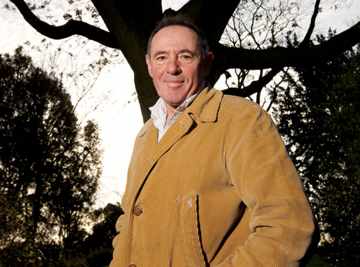
*Author of HOW TO LIVE OFF-GRID launches plan to build homes for less than £50,000 ($80,000).
*They consume 25% of average energy and water
*Using the new Localism Act to create a proof of concept
Off-grid settlements – historically a fringe interest in the UK, although they have a long history in other countries, including the US – offer an important new alternative — important because they help solve three problems:
– Cheap housing – how to enable it
– Energy security – how to improve it
– Rural regeneration – how to kickstart it
The indicators keep ticking towards a time when living off-grid will seem a sensible, mainstream choice. For the first time, the cost of solar power is close to converging with the cost of utility power. The price of oil has remained at or over $100 a barrel; sales of wood-burning stoves are at their highest since the introduction of gas central heating; and house prices remain unaffordable to vast swathes of first-time buyers.
At a time when housing in this country is facing multiple crises – of affordability and supply, and, in the case of social housing, of funding and allocation – we need to be willing to embrace brave and new solutions.
But as with so many other useful ideas in Britain, politicians are unwilling to lead us towards them.
8 Responses
I am not claiming to be a genius but I have common sense and know basically what I want to do.I want to live in a geodesic dome home kit on a piece of land that has no restrictions in the geographical location I choose.The utilities I’ll need are solar and wind,sun-mar composting toilet, atmospheric water generator and rain collection.I am having trouble finding the land and pricing for the various utilities that I have mentioned.Any info that answers these questions will be greatly appreciated.Well and septic??too and a zone where computer and cell phones work
green houses will save the planet, and the economy!
we have to respect god and live in harmony with its creation.
Hi Jesse
Great idea, could you move to France lots of very cheap land there, and getting cheaper.
Maybe not for you !
Good luck hope you find something
Maybe you could club together with others and do something ?
+1.. no.. +3 for jason’s comment !!!
Nations should get the unemployed back to work building off-grid homes !
I would like to know how I could find one acre to pay lease on with my Gov/disability check and live however I want to. Build my own house that wouldn’t last over 50 yeasrs since I don’t own the land and it therefore wouldn’t practical to build a longer lasting house. I’m 55 years old now.
Dealing with humanure = pee and poo
I think if you can poo in a bucket and deal with that you are on your way to living off-grid. My poo buckets which are two months old are filled with bugs eating away at it and it like 50% lighter. Bugs can really compost human manure real fast in an enclosed bucket. In the winter time i burn mine in the woodstove. I use newspaper to poo on in my portapotty and then toss it right into the fire. My portapotty is just a small camper toilet with a elder chair riser with handles. The riser lets me clean it and the portapotty lets me line it with a plastic bag with some holes punched thru for the pee to go into. I then use the pee with woodash and sawdust or woodscraps to compost my food scraps to be used for later to fertilize around fruit trees. I guess one doesn’t have to add the food scraps but i do since it sometimes has bones etc etc. The urine is a great nitrogen and the decomposting wood and ash with it makes for a great total fertilizer.
Yes dealing with this basic human element is the best way to start to learn to live off-grid because if your putting in a expensive septic system well your taxes will go up and if you even have a composting toilet and bathroom your taxes will go up but if your living in a no indoor plumbing building your taxes will stay low. Then you want to be sure you are dealing with this element properly. Master your poo and pee and you have taken the first step to going off-grid.
PS: Many think they can just bury it but if your in a region with lots of rain it can and will get into your well and water systems “over time” Especially if you have a few people there.
I built 6 apartments and 6 houses that are green homes in eastern Pa suburbs back in the 80’s and 90’s. They use 1/10th what a similar size home might use. They use the earths natural heat to cool and warm them. The key is the basements being 13 ft deep underground and keeping exterior walls seprate from interior wals and isolating each floor level from heat exchanges. I used cinderblock and filled them with perlite and then put 2inch celotex against them with steel studs and used I beams and lolly columns for structure. Yes its the best thing i have done in my many yrs of construction.
Today i live in the country and enjoy some of the same techniques with my old 1820’s home with its basement fireplace and natural spring in it. I recently built a wellhouse around my old hand dug well which allows me to get water from it yr round now.
Under most of the planet the earth stays 56 degrees yr round and if we use this heat / collness we only need to go 14 degrees up to a comfortable 70 degrees verses zero degrees to 70 with a slab home.